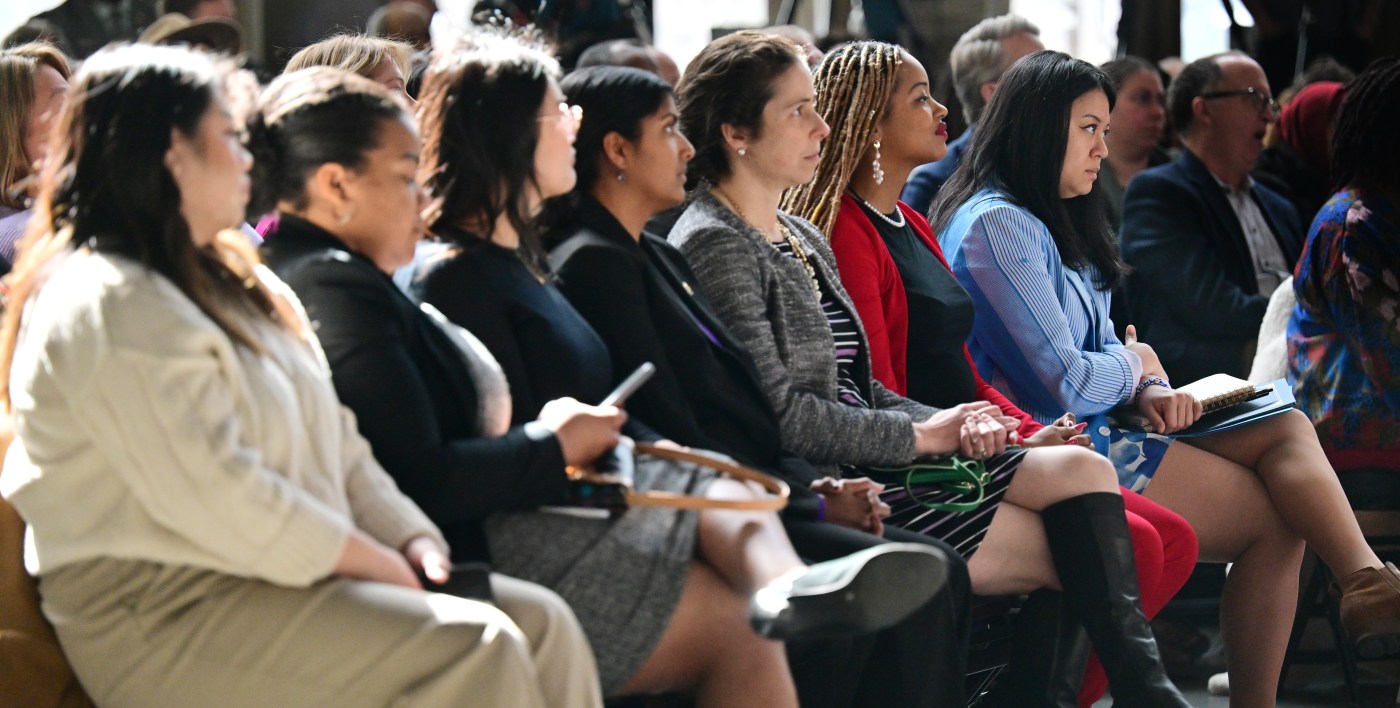
St. Paul City Council votes 7-0 to approve 300 ft. distance requirement from schools for cannabis shops
Once the state launches licensing, future cannabis retailers will be allowed to open within about a block of St. Paul high schools and elementary schools.
The St. Paul City Council voted 7-0 on Wednesday to adopt the recommendation of city staff and create a 300-foot buffer between cannabis shops and primary and secondary schools. The distance is equivalent to a short city block or half of a long one.
The new zoning buffer — which effectively regulates cannabis sales like liquor — does not apply downtown, where some schools are situated inside multi-use commercial buildings, and it’s quite a bit shorter than the maximum allowed distance requirement under state law, which is 1,000 feet, or about three blocks.
Anti-tobacco advocates like the Association for Non-Smokers had urged the city council to approve the state’s maximum distance requirement from schools, noting it would be easier down the line to reduce the buffer from 1,000 feet if desired than to expand it from 300 feet should problems arise.
City Council Member Rebecca Noecker said Wednesday she had listened to the comments of “a lot of the folks who were concerned about the distance requirements, and were asking us for further distance from schools and parks,” but planning staff found that longer buffers and heavier restrictions would leave most of the city’s business corridors off-limits, effectively funneling new cannabis shops into industrial districts and some parts of West Seventh Street.
“It’s really important that these uses not be too concentrated in any one particular neighborhood,” Noecker said. “Given that risk of over-concentration, that’s what’s leading me to support staff’s recommendation.”
Rules around daycares
City planning staff found that of 29 cities they researched, six of them had no distance requirements, while the remaining 23 cities had requirements ranging from 200 feet to 1,000 feet from uses like schools, daycares, playgrounds and other cannabis businesses. Under state law, the maximum distance requirement from daycares and parks can be 500 feet, but the St. Paul Planning Commission did not recommend adding those limits during their review this year.
Council Member Nelsie Yang said she would not introduce an amendment on Wednesday, but she urged the council to consider expanding the 300 foot distance requirement in the near future to include daycares, and not just schools.
“I don’t want to delay the final vote,” Yang said.
Council Member Anika Bowie said the new zoning controls strike the right balance between embracing an emerging industry and safeguarding the public. Based on her discussions with city planning staff, she said, the new restrictions reduce the number of land parcels where a cannabis shop can open in her political ward, Ward 1, by 138 parcels.
Having clarity around where shops can operate “is really important for people who are looking to do retail and do business here in St. Paul,” Bowie said.
“This is a critical step forward toward establishing a vibrant and responsible cannabis industry,” said Mayor Melvin Carter, in a written statement issued after the council vote.
State law
In August 2023, Minnesota became the 23rd state to legalize cannabis for recreational use.
Under state law, municipalities are expected to create zoning rules around cannabis retail that do not block shops from opening in a city at all. Cities also are expected to register cannabis businesses and conduct compliance checks.
Otherwise, some 13 to 16 different types of cannabis licenses governing everything from growing to transport will fall under state jurisdiction and be issued by the state. The state Office of Cannabis Management floated the first draft of wide-ranging rules for the cannabis industry from July 31 to Aug. 30, touching on everything from packaging, testing and labeling to fertilizers.
A public comment period is likely to open this fall once the rules are further revised, with business licensing likely to get underway next year.
“We are really, really new in our implementation of the cannabis law in our state,” said Council President Mitra Jalali, addressing the council. “From there, we really rely on the Office of Cannabis Management to ensure there’s a fair and (ample) licensing process.”
Production, cultivation, security
Other aspects of the new zoning changes approved by the council on Wednesday include:
• Cannabis retailers must operate and maintain a closed-circuit television (CCTV) surveillance system. The CCTV video surveillance system must operate for 24 hours per day, seven days per week and visually record all sales areas and all points of entry and exit.
• Cannabis retail is prohibited from sharing a common entrance with a business licensed as a tobacco products shop.
• Restaurants, bars and other businesses already carrying hemp-derived edible products, such as low-potency gummies, can continue to operate as usual in mixed-use and commercial areas.
• Limited cannabis production and cultivation under 15,000 square feet can take place in mixed-use, commercial and industrial districts. Commercial outdoor cultivation, such as rooftop growing operations, will require a conditional use permitting process.
• Except in industrial districts, a conditional use permit will be required for new retail construction covering more than 15,000 square feet. Industrial zoned districts are the only areas of St. Paul where industrial-scale cultivation spanning more than 15,000 square feet can locate.
More information about St. Paul’s cannabis regulations are online at http://pipr.es/ZWM8drN.
Related Articles
Tour seven new murals in St. Paul at annual Chroma Zone festival
St. Paul man pleads guilty to swiping pricey dog from woman on walk
Ross Dress for Less, Five Below stores open in St. Paul, Maplewood
Bethel University joins Concordia, others in cutting ‘sticker price’ tuition
Boy, 14, wounded in shooting outside St. Paul high school


